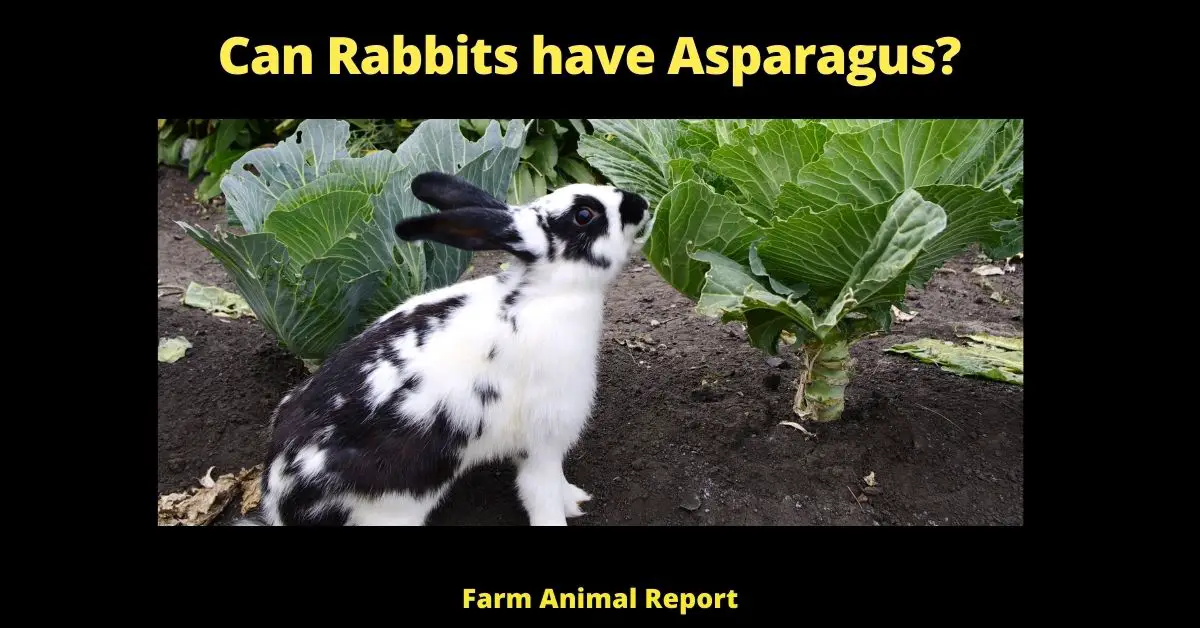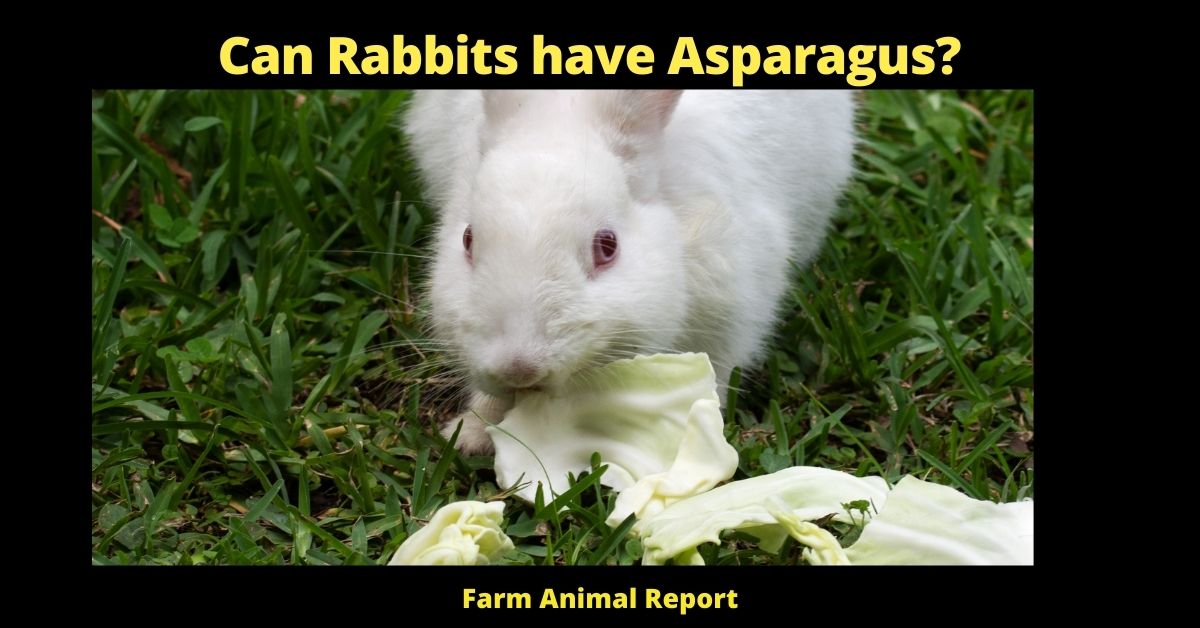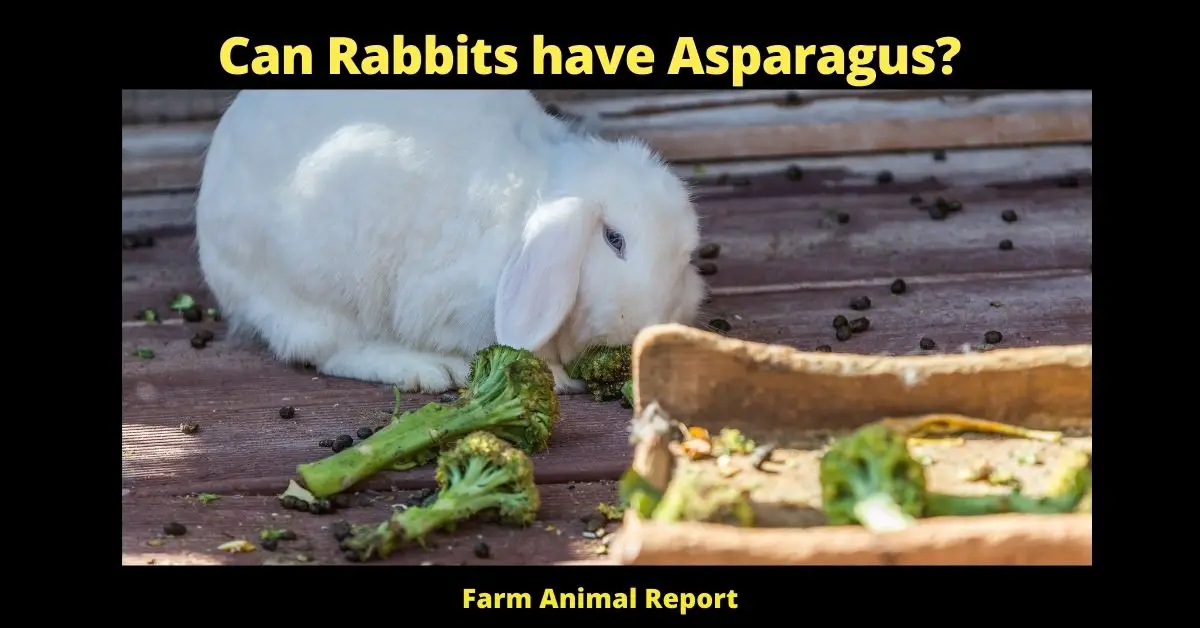Asparagus is Great for Rabbits and People. Vitamin A is important for healthy vision and immune function. Vitamin C helps heal wounds and maintain healthy bones and teeth. Vitamin E is an antioxidant that protects cells from damage. Vitamin K helps blood clot properly. Folate is important for pregnancy because it helps prevent birth defects in the baby’s brain and spine.
Can Rabbits Eat Asparagus?
Many people are curious if rabbits can eat asparagus. The answer is yes, rabbits can have asparagus but in moderation. Asparagus is a healthy vegetable that provides a number of important nutrients for rabbits. It is high in fiber, vitamin A, and vitamin C. Asparagus also has anti-inflammatory properties, which can be beneficial for rabbits with health problems.
What is asparagus and what are its benefits for humans and rabbits alike?
The amazing nutrition value of asparagus is due to the presence of vitamins, minerals, fiber, and antioxidants. Asparagus is an excellent source of vitamins A, C, E, and K. It also contains folate (B vitamin), potassium, selenium, copper, manganese, zinc, iron, phosphorus, and magnesium.
Check Out Amazon for Resources about Breeding Rabbits
Potassium helps regulate blood pressure and heart rate. Selenium is a mineral that acts as an antioxidant. Copper helps the body make energy and maintain healthy bones, blood vessels, and nerves.
Manganese is needed for proper bone development. Zinc is essential for a strong immune system and wound healing. Iron is necessary for making hemoglobin, which carries oxygen in the blood. Phosphorus helps build strong bones and teeth. Magnesium helps regulate blood sugar levels, supports nerve and muscle function, and helps keep heart rhythm steady. Can Rabbits have Asparagus?
Asparagus also contains inulin, a type of soluble fiber that acts as a prebiotic. This means it feeds the good bacteria in the gut, which are important for digestion and overall health. In addition to its many vitamins and minerals, asparagus is also a good source of antioxidants. These are compounds that protect cells from damage caused by free radicals. Jump to 18 Ways to Make Money by Rabbit Farming **CHARTS**
Asparagus is a healthy vegetable for both humans and rabbits. It is high in fiber, vitamins, minerals, and antioxidants. Asparagus also has anti-inflammatory properties, which can be beneficial for rabbits with health problems.

How to introduce Asparagus into your Rabbit’s Diet?
You should introduce asparagus into your rabbit’s diet slowly to avoid gastrointestinal upset. Start by giving your rabbit a small piece of cooked asparagus once or twice a week. If there are no adverse effects, you can increase the amount gradually. Some rabbits may not like the taste of asparagus at first, but they will usually come around if it is offered regularly.
The Potential risks Associated with giving your Rabbit too much Asparagus?
Giving your rabbit too much asparagus can cause gastrointestinal upset and diarrhea. If you notice any of these symptoms, reduce the amount of asparagus you are feeding your rabbit. As with any new food, it is always best to introduce asparagus into your rabbit’s diet slowly and in small amounts.
- The potential risks associated with giving your rabbit too much asparagus are digestive issues such as gas, bloating, and diarrhea. If you notice any of these symptoms, reduce the amount of asparagus you are feeding your rabbit or stop feeding it to them altogether.
- One thing to keep in mind when feeding your rabbit asparagus is that it contains oxalates. Oxalates are compounds found in plants that can bind with calcium and other minerals to form crystals. These crystals can be harmful if they build up in the body, so it is important to limit the amount of asparagus your rabbit eats.
What are the Percentage Amounts of an Optimal Rabbits diet?
- Hay should be the largest component of a rabbit’s diet, making up about 80%. The best hays to use are timothy, oat, brome, orchard grass. You can purchase these hays at your local pet store.
- Fresh vegetables should make up around 15-20%. Fresh vegetables and fruits make up the remaining 20% of a rabbit’s diet and should be given to them daily. A good way to think about it is to offer your rabbit as much fresh food as they – The best Vegetable that rabbits love are dark leafy greens like kale, spinach, Swiss chard, and collard greens.
- Other vegetables that are good for rabbits are carrots, broccoli, green beans, peas, Brussels sprouts cabbage.
- Rabbits also like fruits such as apples, blueberries, raspberries, bananas (without the peel), cantaloupe, and watermelon.
- Remember that when you are introducing new foods to your rabbit, do so slowly to avoid any digestive upset. Start with just a few pieces of the new food and gradually increase the amount over time.
- Pellets, which should only make up around 0-15%. The best Pellets to use are high in fiber, low in sugar, and have added vitamins and minerals.
- You can find these pellets at your local pet store. Avoid giving your rabbit any pellets that are mostly made of corn or wheat as they are not good for them.
- The occasional treat is fine but should not make up more than about five percent of their diet.
- Some good treatment options for rabbits are carrot tops, parsley, cilantro, dandelion greens, and alfalfa hay.
- You can also give them a small piece of fruit or a few pieces of their favorite vegetable as a treat. Just remember not to give them too many treats as it can cause them to gain weight.
- When feeding your rabbit, always make sure they have access to freshwater. Water should be changed daily and the bowl should be cleaned often to prevent bacteria from growing.
Tips on how to store fresh asparagus so it lasts longer?
Fresh asparagus should be stored in the refrigerator in a plastic bag. It will keep for up to four days. You can also freeze asparagus for longer-term storage. Wash and trim the ends off the spears before freezing.
Place them in a single layer on a baking sheet and freeze for two to three hours. Once they are frozen, transfer them to a freezer-safe bag or container. Frozen asparagus will keep for up to eight months.
Never Give Moldy, rotten asparagus – Fresh is Best
Giving your rabbits, stale, moldy, or rotten asparagus can make them very sick. If you would not eat it, don’t give it to your rabbit.
How to Keep Your Rabbits from Eating all your Garden Asparagus?
If you have rabbits that live outside, you can protect your asparagus plants by fencing them in with chicken wire. Make sure the fence is at least two feet tall so the rabbits can’t jump over it.
You can also try planting other vegetables that rabbits don’t like, such as broccoli or cabbage, around the perimeter of your asparagus patch. Finally, consider using a rabbit-resistant variety of asparagus, such as ‘Jersey Knight’ or ‘Martha Washington.’ These varieties are less palatable to rabbits and are less likely to be eaten.
What are the Symptoms of a Bunny with an Upset Tummy?
Some of the noticeable symptoms that your rabbits is having stomach, bowel problems are:
- Poop changing Color
- Blood in stool
- Rabbit straining to poop
- Lethargy
- Not eating or drinking
- Abnormal posture while trying to poop (hunched over)
- Pain when you touch their belly
- Excessive gas
- Bloating
- If your bunny is experiencing any of these symptoms, it’s best to take them to the vet right away as it could be life-threatening
Can Rabbits eat asparagus ends?
As any farmer knows, rabbits are versatile eaters. They will nibble on just about any type of vegetation, from tender young shoots to tough, fibrous roots. Asparagus is no exception. Rabbits can safely eat asparagus ends, and they may even enjoy the slightly bitter taste. However, as with any type of food, it is important to offer asparagus in moderation.
Too much of any one type of food can cause digestive upset in rabbits, so it is important to provide a variety of different foods to ensure that they are getting all the nutrients they need. In general, as long as asparagus ends are given in moderation, rabbits should be able to enjoy them without any problems.
Rabbits Vegetable FAQ’s
What vegetables can rabbits eat?
Rabbits love eating the following veggies: asparagus, beet greens, broccoli, Brussels sprouts, cabbage, carrot tops, celery leaves, collard greens, endive, escarole, kale , lettuce , parsley , watercress.
Other Important tags
- yes asparagus is safe to be eaten by rabbits in small amounts occasionally
- asparagus is not toxic to a rabbit and can be added
- yes asparagus can be fed to your pet rabbits
- yes it is safe for rabbits
- yes it is safe for rabbits
- eat asparagus leaves
- rabbits eat raw
- eat asparagus stalks
- bunnies eat asparagus

Can rabbits eat cauliflower?
Rabbits can eat cauliflower, but only in moderation. Cauliflower is high in sugar and can cause digestive issues in rabbits.
Cauliflowers’ nutritional benefit is that it’s high in fiber which helps with a rabbit’s digestive system.
Can rabbits eat celery?
Rabbits can eat celery, but only in moderation. Celery is high in sugar and can cause digestive issues in rabbits.
Can rabbits eat corn?
Corn is a starchy vegetable and should be avoided. Corn can cause digestive issues in rabbits.
Can rabbits eat cucumber?
Cucumbers are a great source of hydration for rabbits. They are low in sugar and safe for rabbits to eat.
What vegetables are bad for rabbits?
The following vegetables are bad for rabbits: avocado, beans, cabbage, garlic, onion, peas. These vegetables can cause digestive issues in rabbits.
Can rabbits eat tomatoes?
Rabbits can eat tomatoes, but only in moderation. Tomatoes are high in sugar and can cause digestive issues in rabbits.
What vegetables can rabbits NOT eat?
Rabbits should not eat the following vegetables:
- artichokes
- avocado
- cabbage
- eggplant
- lima beans
- mushrooms
- potatoes
- rhubarb
- sweet potatoes
- tomato plants
- turnips.
These vegetables can be poisonous to rabbits.
As you can see, there are many vegetables that rabbits can enjoy some are healthier than others
Final Thoughts – Can Rabbits have Asparagus?
- Asparagus is a healthy vegetable for rabbits to eat, but it should only be given to them in small amounts. If you have any concerns about feeding your rabbit asparagus, talk to your veterinarian.
- The best way to feed vegetables to a rabbit is by giving them a variety of fresh, washed vegetables every day. You can also add some hay or pellets to their diet for extra nutrition.





